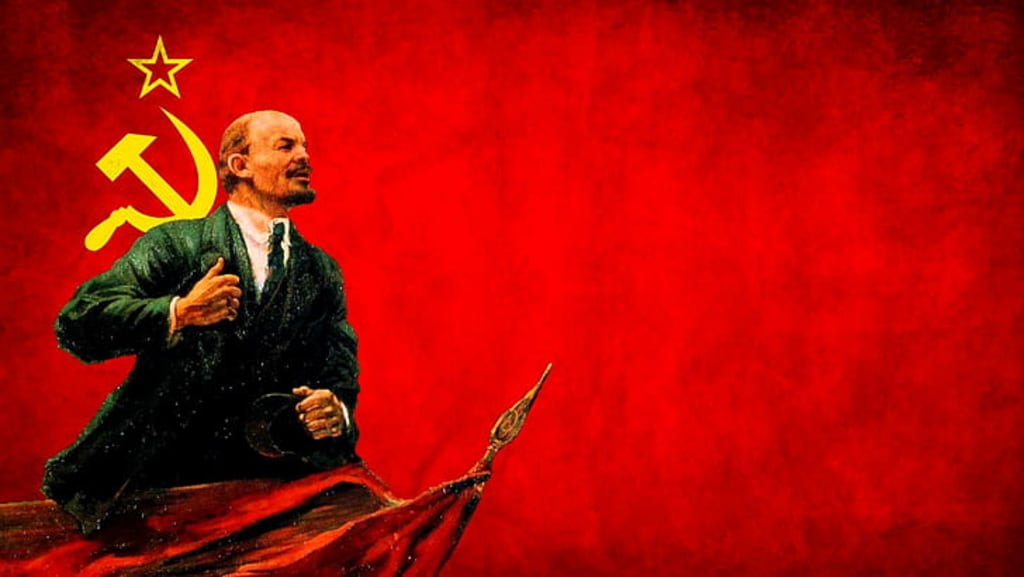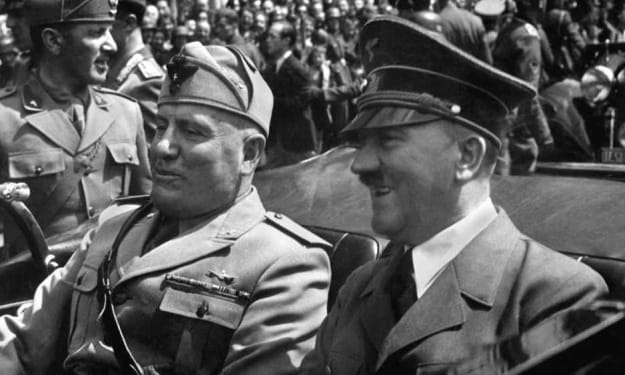Vladimir Ilyich Lenin (1870-1924)
Revolutionary communist

Vladimir Ilyich Lenin (1870-1924) was a Russian revolutionary, political leader, and theorist who played a key role in the Bolshevik revolution of 1917 and the establishment of the Soviet Union. He was born in Simbirsk (now Ulyanovsk) and became involved in Marxist political activism as a young man. He played a leading role in the establishment of the Bolshevik Party in 1912 and led the October Revolution in 1917, which brought the Bolsheviks to power in Russia. Lenin served as the first head of the Soviet government and played a key role in the establishment of the Soviet Union in 1922. He was a key proponent of Marxist theory and is credited with developing the concept of a revolutionary vanguard party. Lenin's writings, including his seminal work "The State and Revolution," remain influential among left-wing political theorists and activists today. Lenin died in 1924, and his body was embalmed and placed on permanent display in Moscow's Red Square.
As the leader of the Soviet Union, Lenin's political administration focused on consolidating power for the Bolshevik Party and implementing Marxist policies. He faced significant challenges in the aftermath of the October Revolution and the ensuing civil war, including widespread famine and economic disruption.
Lenin's government implemented a policy of war communism, which aimed to centralize control over the economy and mobilize resources for the war effort. This involved the nationalization of industry, the requisitioning of grain and other agricultural products, and the establishment of a command economy.
In 1921, Lenin introduced the New Economic Policy (NEP), which aimed to gradually reintroduce elements of a market economy while maintaining state control over key sectors. This policy allowed for private enterprise and some foreign investment, while also establishing state-owned enterprises in key industries. The NEP helped to stabilize the economy and improve living conditions, but was criticized by some as a retreat from Marxist principles.
Lenin also pursued a policy of international revolution, supporting communist movements in other countries and seeking to export the revolution beyond Russia's borders. He played a key role in the establishment of the Communist International (Comintern) in 1919, which aimed to coordinate the activities of communist parties around the world.
Despite his contributions to the establishment of the Soviet Union, Lenin's legacy is controversial. His administration was characterized by authoritarianism and repression, including the use of secret police and the suppression of political opposition. His policies also had a significant impact on the country's economic and social development, with both positive and negative consequences.
Vladimir Ilyich Lenin was born on April 22, 1870, in the city of Simbirsk (now known as Ulyanovsk), in the Russian Empire. His birth name was Vladimir Ilyich Ulyanov. He was the third of six children in a well-educated, middle-class family.
Lenin's father, Ilya Nikolayevich Ulyanov, was an inspector of schools, and his mother, Maria Alexandrovna Ulyanova, was a teacher. Both of his parents were deeply committed to education and social justice, and they instilled these values in their children.
In 1887, Lenin's older brother, Alexander, was executed for his involvement in a plot to assassinate Tsar Alexander III. This event had a profound impact on Lenin and helped to shape his revolutionary views.
Lenin attended the University of Kazan, where he studied law and politics. It was during his time at university that he became interested in revolutionary politics and began to read the works of Karl Marx.
After university, Lenin began to organize revolutionary groups and publish political pamphlets. In 1895, he was arrested and exiled to Siberia for his political activities. He spent the next several years in exile, but continued to organize and agitate for revolution.
In 1900, Lenin was allowed to return to the European part of Russia, and he immediately resumed his revolutionary activities. He founded the newspaper Iskra (The Spark), which became the voice of the Bolshevik Party, and began to build a network of supporters and organizers.
In 1917, Lenin and the Bolsheviks seized power in Russia, and Lenin became the first leader of the Soviet Union. He remained in power until his death in 1924.





Comments
There are no comments for this story
Be the first to respond and start the conversation.